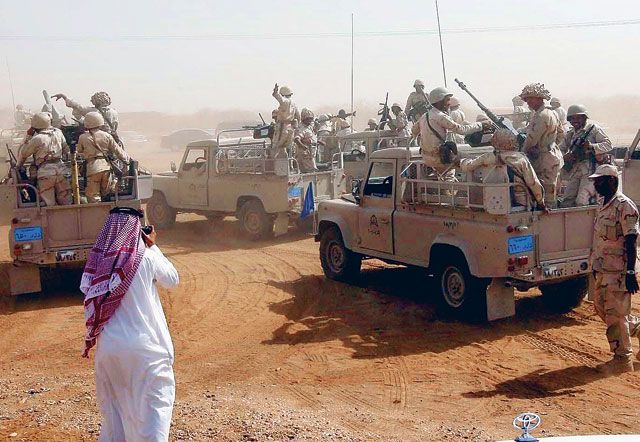Mazraq, Yemen: Along the jagged, oatmeal-coloured mountains of northern Yemen, civil war has transformed the windswept landscape into a canvas of human misery, bolstering Al Qaida's efforts to create a haven in the Middle East's poorest nation.
It is a war, largely hidden from the rest of the world the past five years, and pits Al Houthi rebels against Yemen's government, but in recent days has also drawn in Saudi Arabia. Yemen and Saudi Arabia accuse Shiite Iran of backing the rebels, raising the spectre of a proxy war that could elevate sectarian tensions in the region.
The fighting could have serious implications for the US anti-terrorism effort in a failing nation where Al Qaida is gaining strength, Western diplomats and Yemeni analysts say. The war is drawing attention and scarce resources away from efforts to combat poverty, a secessionist movement in the south and piracy along the nation's shores. A prolonged conflict, they say, could further weaken Yemen's government and deepen societal fissures, allowing Al Qaida militants to thrive.
"The longer the war in the north continues and the longer the problems in the south continue without resolution, the more we pave the road for Al Qaida," said Yahya Abu Asbu, a foreign ministry official and deputy secretary general of the Yemen Socialist Party. "Yemen will become more dangerous than Somalia."
Dangerous than Al Qaida
"You cannot say Al Houthis are less dangerous than Al Qaida," said Yasser Ahmad Bin Salim Al Awadi, who heads the government's ruling bloc in parliament. "Al Qaida is not doing something like what Al Houthis are doing now."
The war has forced more than 175,000 Yemenis to flee their homes; many more remain trapped in areas gripped by violence.
Ali Abdu and his family are among the war's newest victims.They escaped to Saudi Arabia two months ago. Evading bombs and bullets, the family reached Mazraq, a crowded refugee camp less than five miles from the front lines. "It is our destiny," said Abdu, 45, with no hint of emotion.
Saudi Arabia's entry into the conflict has touched a nerve with Iran. Last week, Iran's foreign minister, Manouchehr Mottaki, declared that no nation should ‘interfere' in Yemen's internal affairs, a veiled snipe at Saudi Arabia. Some analysts say if Saudi Arabia continues to attack the rebels, Iran might decide to back Al Houthis, if it hasn't already, as a way to gain leverage over Riyadh.
"Iran believes the biggest obstacle to its growing influence in the region is Saudi Arabia," said Najeeb Gallab, a political researcher at Sana'a University. "To weaken Saudi influence, Iran believes Yemen is the starting point."
Many Yemenis say Al Qaida is already taking advantage of the government's focus on the north. An Al Qaida ambush this month in the east that killed five security officials raised questions over whether the thinly stretched government can control the entire country. "In this environment, security is weak and the government is busy with wars. This is the environment Al Qaida wants."













